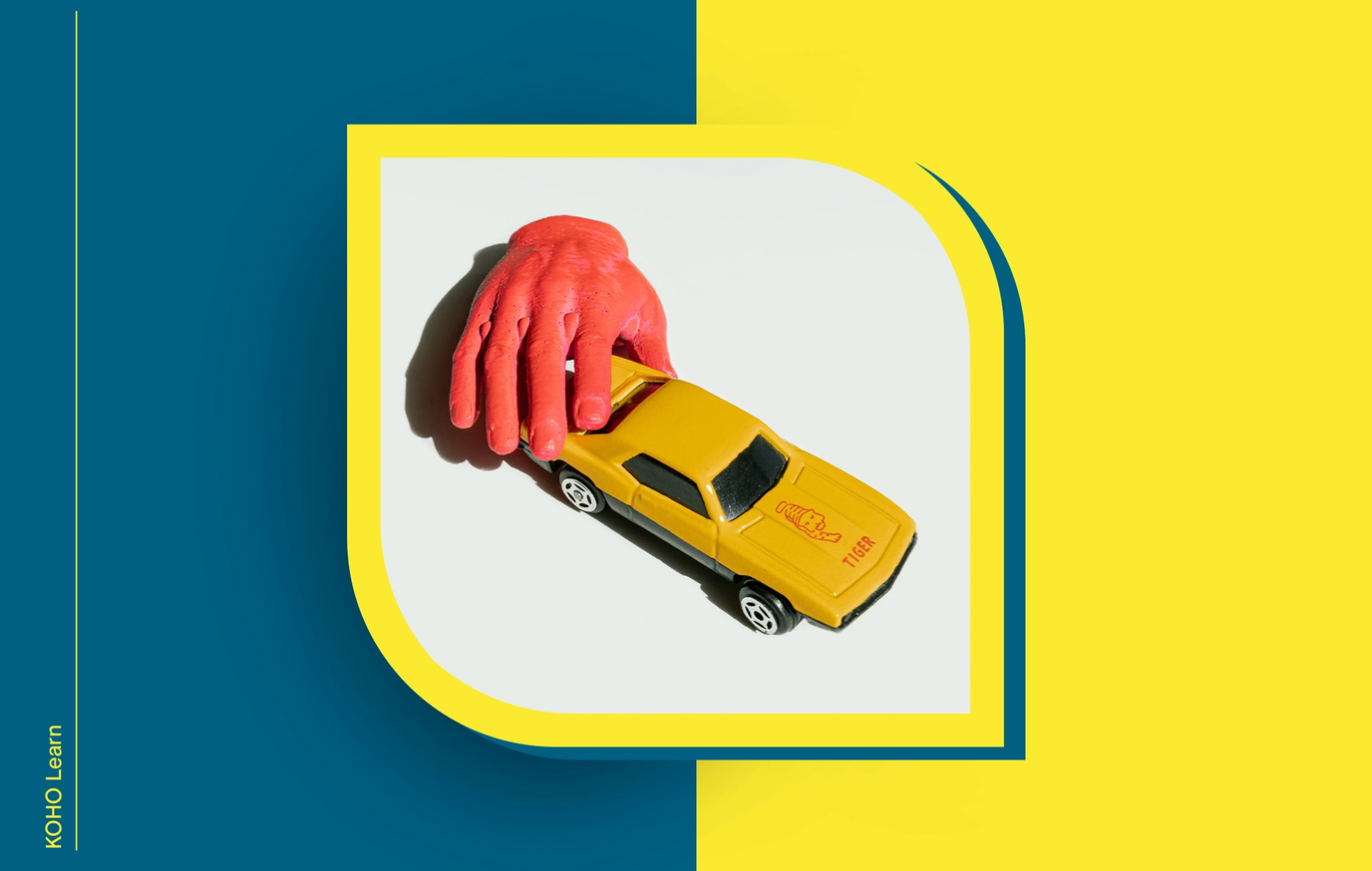
Rounding it up
Cash, savings, and financing are all valid options for purchasing a vehicle, each with its pros and cons.
Financing is the most popular and widely opted for choice. If financing, you can choose between an unsecured personal loan or a secured car loan.
Leasing is also an option for those who want the flexibility of changing their vehicle often or wish to drive a newer or better vehicle than they can afford to purchase.
Don’t forget to create a detailed budget to determine what kind of car you can afford before you finalize your decision.
The majority of people can’t afford to purchase a vehicle using just cash. Requiring the assistance of some form of financing for a vehicle is very common. However, there tends to be very limited knowledge surrounding the different financing options for making a vehicle purchase.
In this article, we will discuss the best options for financing your car in Canada, whether you're buying a new vehicle, a used vehicle, or one that is certified pre-owned.
We all have varying financial situations. Do you want to finance your purchase with cash, leasing, financing, or spending your savings? Each option has its benefits but also its downfalls. So, which one is right for your situation?
Cash, savings, or financing?
Did you know that the average Canadian family only has $852 in their savings account? Of course, you’re unlikely to be able to purchase a vehicle outright if you don’t have thousands of dollars available. Even if you do have the cash immediately available, though, it can be beneficial to finance part of your purchase.
That’s because withdrawing your savings to buy a vehicle isn’t necessarily the wisest option. Once you take the money out of your savings account (depending on the type of account you own) you might end up paying taxes on it as though it were income. It might be better to leave as much as possible in your savings account to earn interest and look to other options for purchasing a new vehicle.
Of course, financing is the most popular method for purchasing a car in Canada. But financing a car is expensive because borrowing money has a cost. When you finance, you’ll end up paying interest on your purchase. But in many cases, financing is the only option people have. However, that doesn’t mean you have to settle for a bad financing deal. Let’s go over some tips when choosing what type of loan to pursue to finance your vehicle.
Should I opt for a personal loan or a car loan to purchase a vehicle?
A personal loan can be helpful when you need to finance the purchase of a vehicle. Personal loans are unique and, in many ways, beneficial for car purchases because they are usually unsecured. This means no collateral is attached to the loan. In addition, you can use the funds to buy almost anything, whereas many auto loans have limitations on the type of vehicle you can purchase. For example, a lot of banks won’t finance older vehicles. So, how do you go about getting a personal loan?
Obtain the necessary personal information and documents and apply to the lender of your choice
Your application will then be reviewed to determine whether or not you are eligible for the loan
Interest rates and term length are then determined by the lender
If approved, you may even receive funds the same day as you submit your application
The primary difference between a personal loan and an auto loan is that the latter is specifically intended for the purchase of a vehicle only. Of course, if you intend to buy a car with a personal loan, this might not make much of a difference. However, with an auto loan, the car you buy will serve as collateral for the secured loan. There is a benefit to this, as the chances of approval for a loan are higher since the lender can guarantee some security for the loan. This tends to also mean that interest rates are slightly better for car loans than personal loans. The process for obtaining an auto loan is very similar to that of a personal loan.
Remember, until the auto loan is paid off in full, the car's title is a lien, so until the loan is paid off, your car isn't yours. What’s more, a down payment of 10% or more is generally required on car loans.
Ultimately, the terms and conditions of your loan will vary between lenders and depend upon your preferences. Most car loans will last around 72 months, but some lenders will allow you to do 36-48 month leases if you are willing to make higher monthly payments or put more into your down payment. Explore multiple lenders to ensure you get the terms that fit your needs.
What about leasing options?
These days, you may be aware that several people opt to lease their vehicle rather than finance one.
Leasing allows you to drive a vehicle, and in many cases a brand new one, for a shorter term with low monthly payments. Putting a larger down payment also helps you get better leasing terms that work with your budget. It’s extremely important to note that leasing a car means you must return it at the end of the term—you never own a leased vehicle during the leasing period. The value of your residual lease can also be used to purchase a different car or to lease a new car. Leasing is flexible, and also allows many people to drive cars that they typically wouldn’t be able to afford to purchase.
However, there are some downsides to leasing. Namely, if you go over the mileage specified in your lease agreement or cause damage to the vehicle, you’ll have to pay at the end of your lease. Plus, you also won’t build any equity when leasing, which is a fairly big con.
SPEND SMARTER. SAVE FASTER
If I have bad credit, how do I finance my vehicle?
When a dealership or bank declines your application for auto financing, it's usually because of your credit rating. Don’t worry, if this happens, all is not lost. There are still a couple of options available.
You can either wait until you've improved or repaired your bad credit score (may we suggest you try out Credit Building?) and try to purchase a vehicle again. Alternatively, you can apply for a bad credit car loan. These loans are specifically designed for drivers who are unable to obtain a regular loan due to their poor credit scores. They work similarly to auto loans, but usually have higher interest rates and stricter regulations.
Lenders look at the following factors when determining interest rates for car loans. Improving any of the following will help your interest rate:
Credit history, along with your credit score
Annual income (detailed analysis of where and when you are getting paid)
Employment status and history
Vehicle status (age, value, etc.)
Length of the term and the down payment percentage
What kind of car can I afford?
Of course, a big part of purchasing a vehicle is determining what kind of car you can afford. When determining a budget, here are some important things to consider:
How much money do you make a month after taxes?
What is your credit history like and what is your current credit score?
What is your income to debt ratio?
Do you have money for a down payment? If so, how much?
Budgeting correctly is critical, as you don’t want to opt for financing a vehicle that you can’t afford to make monthly payments on. Remember, once you drive away in your new car, it depreciates quickly in value. For that reason, it is important to stay away from “flashy” cars as they’re going to cost you more and depreciate just as fast.
Ultimately, this means that if you can’t afford your monthly payments, you could find yourself in a financial rut if you’re unable to sell the vehicle for enough money to cover the remainder of your loan. Don’t forget to consider how much you might have to pay monthly for interest on your loan. It can be helpful to find out how much interest different lenders will charge on a particular vehicle before you make your purchase.
Car purchases don’t have to be a major budget item. If you go with an expensive or “flashy” car, then chances are your monthly payments are going to be significantly higher. This can take a chunk of money away from rent, insurance, food, or social life. However, if you find the right car and explore your financing options, you can get a monthly payment that works well with your budget. This will save you a lot of money down the road.
Explore your options
Purchasing a vehicle is a big, exciting decision. Before you pull the trigger on buying a car, you should make sure that you’re knowledgeable about your different financing options. Some options might be more beneficial than others for you, so you should consider your circumstances before making a final decision.

About the author
Ben is a freelance writer and law student at Indiana University Maurer School of Law. He previously worked in various marketing positions before launching his own content writing agency.
Read more about this author